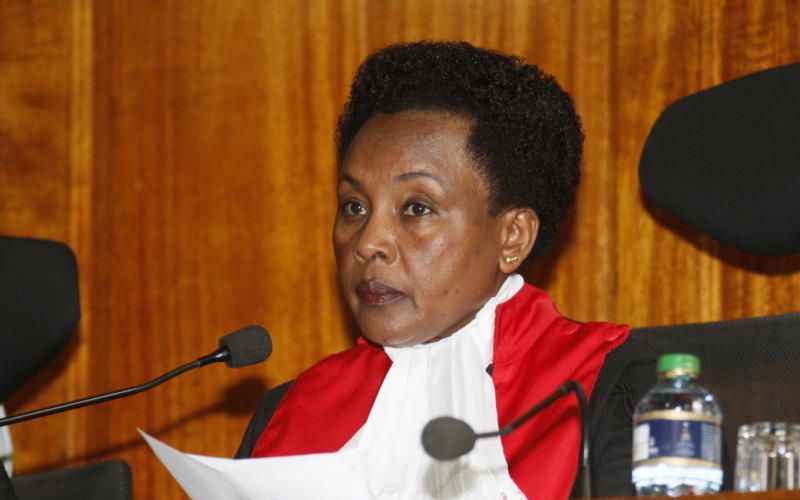×
The Standard e-Paper
Fearless, Trusted News

A fresh petition seeking to stop the Deputy Chief Justice from succeeding retired Chief Justice David Maraga in an acting capacity is still pending in the High Court.
Activist Okiya Omtatah has sought court orders to block Deputy Chief Justice Philomena Mwilu from acting as Chief Justice because four petitions are seeking her removal as a judge.